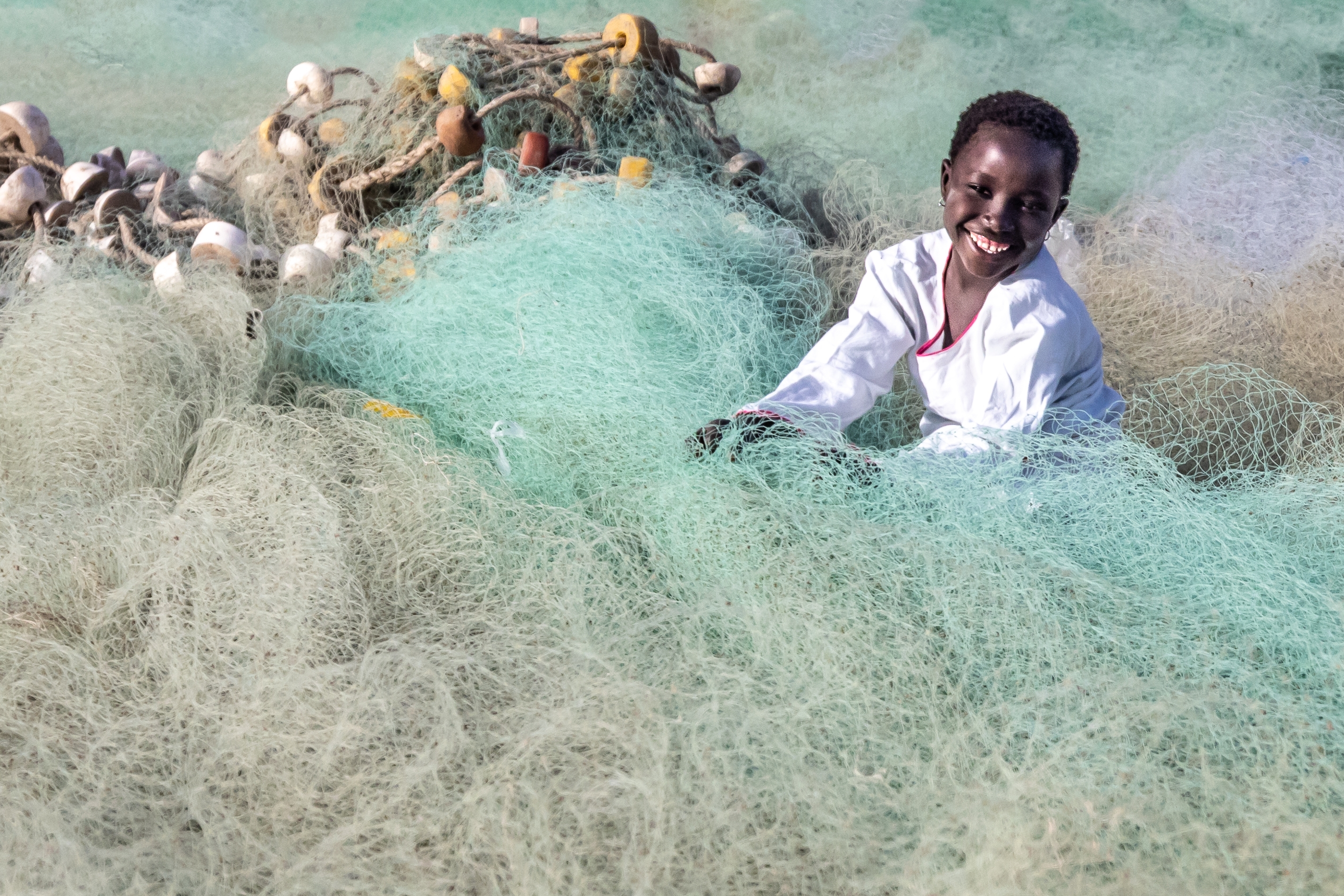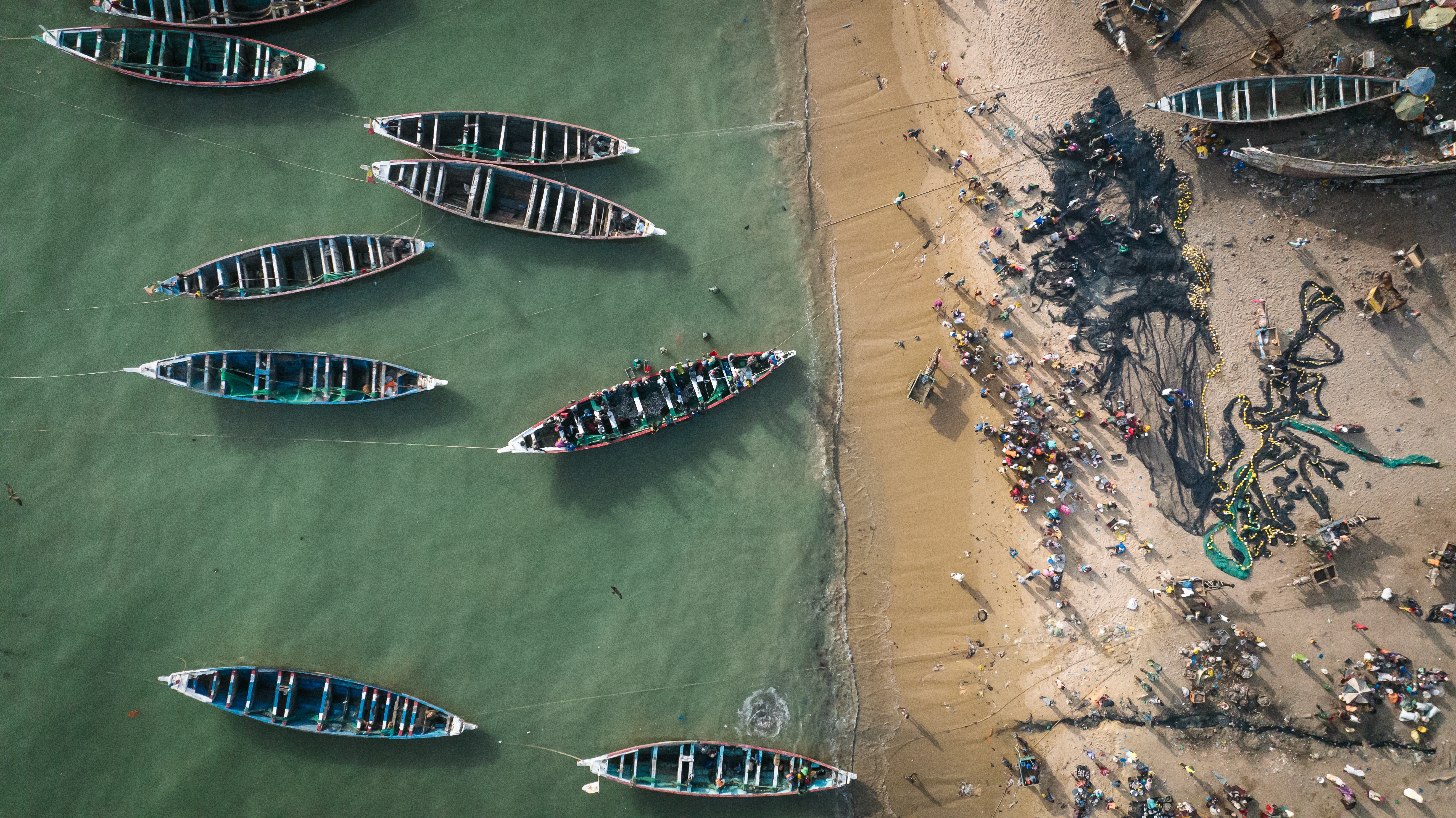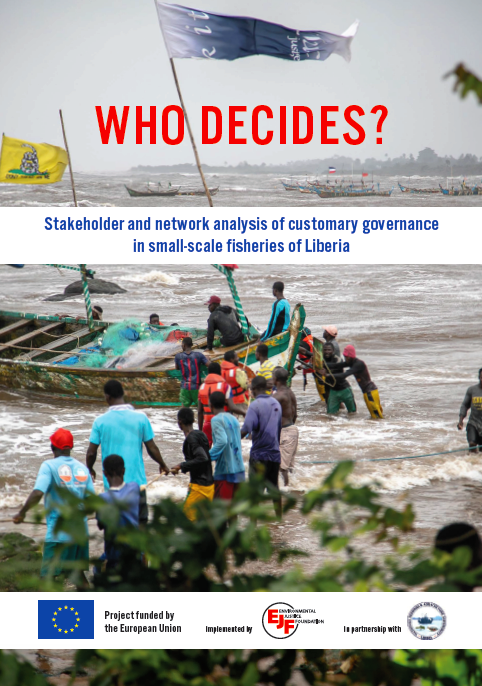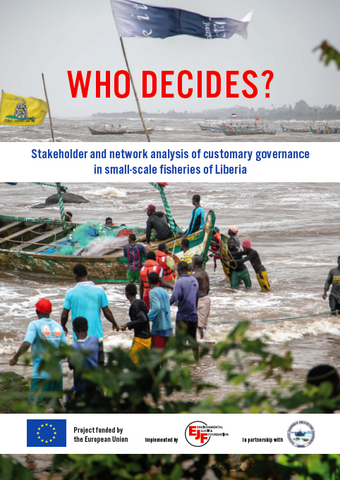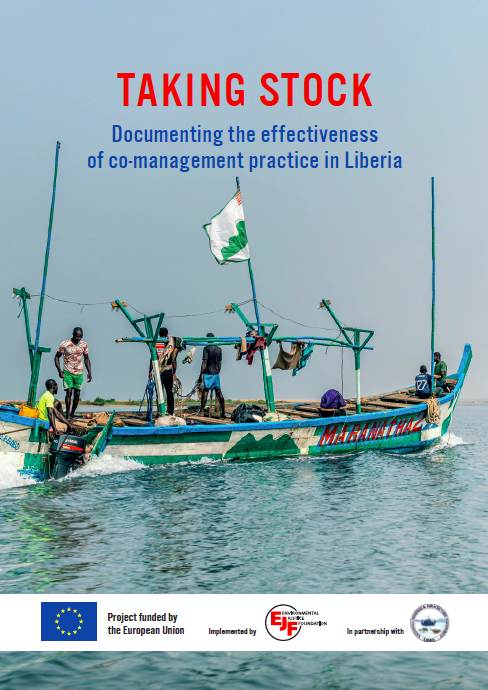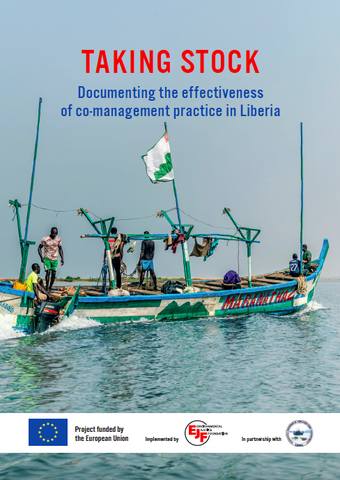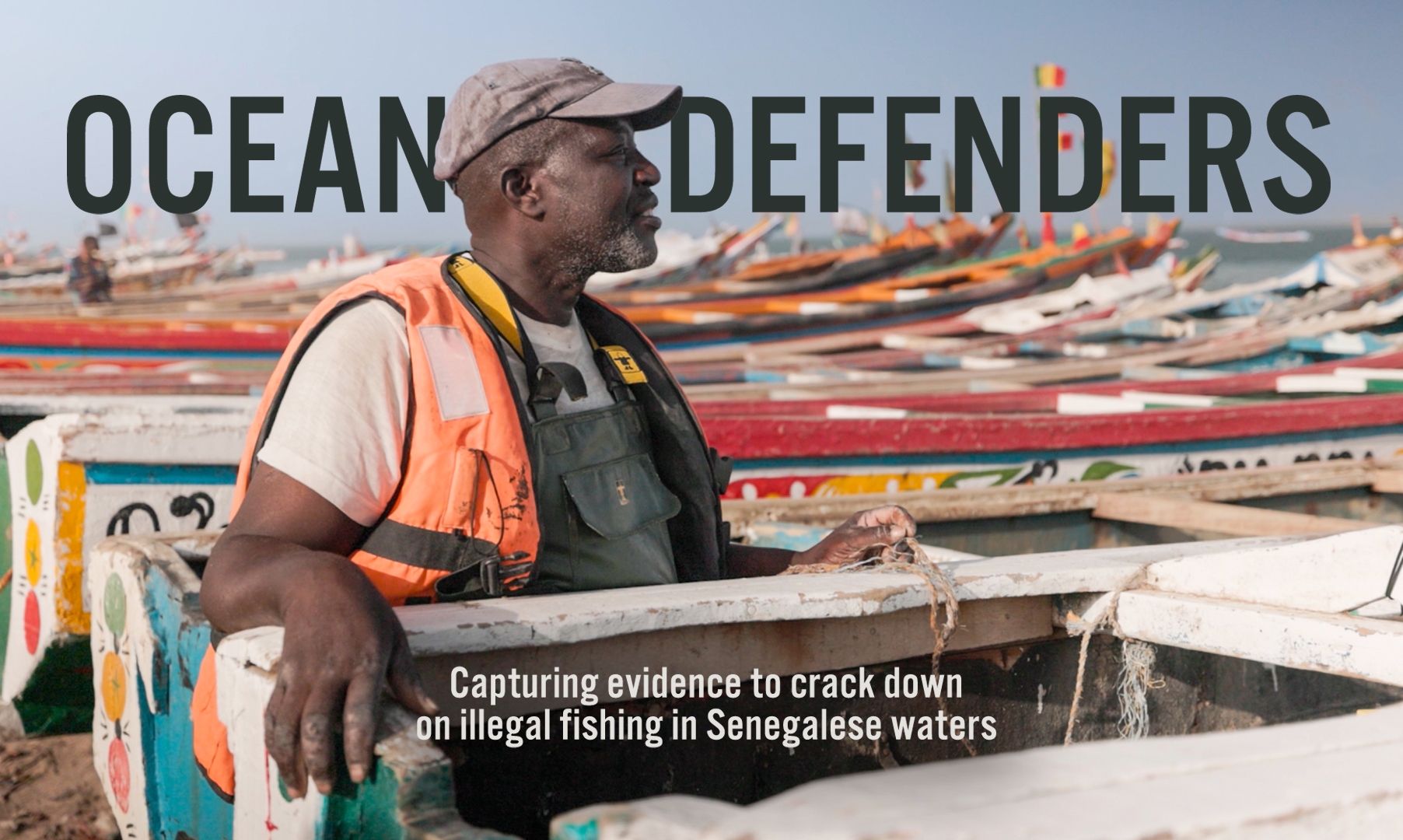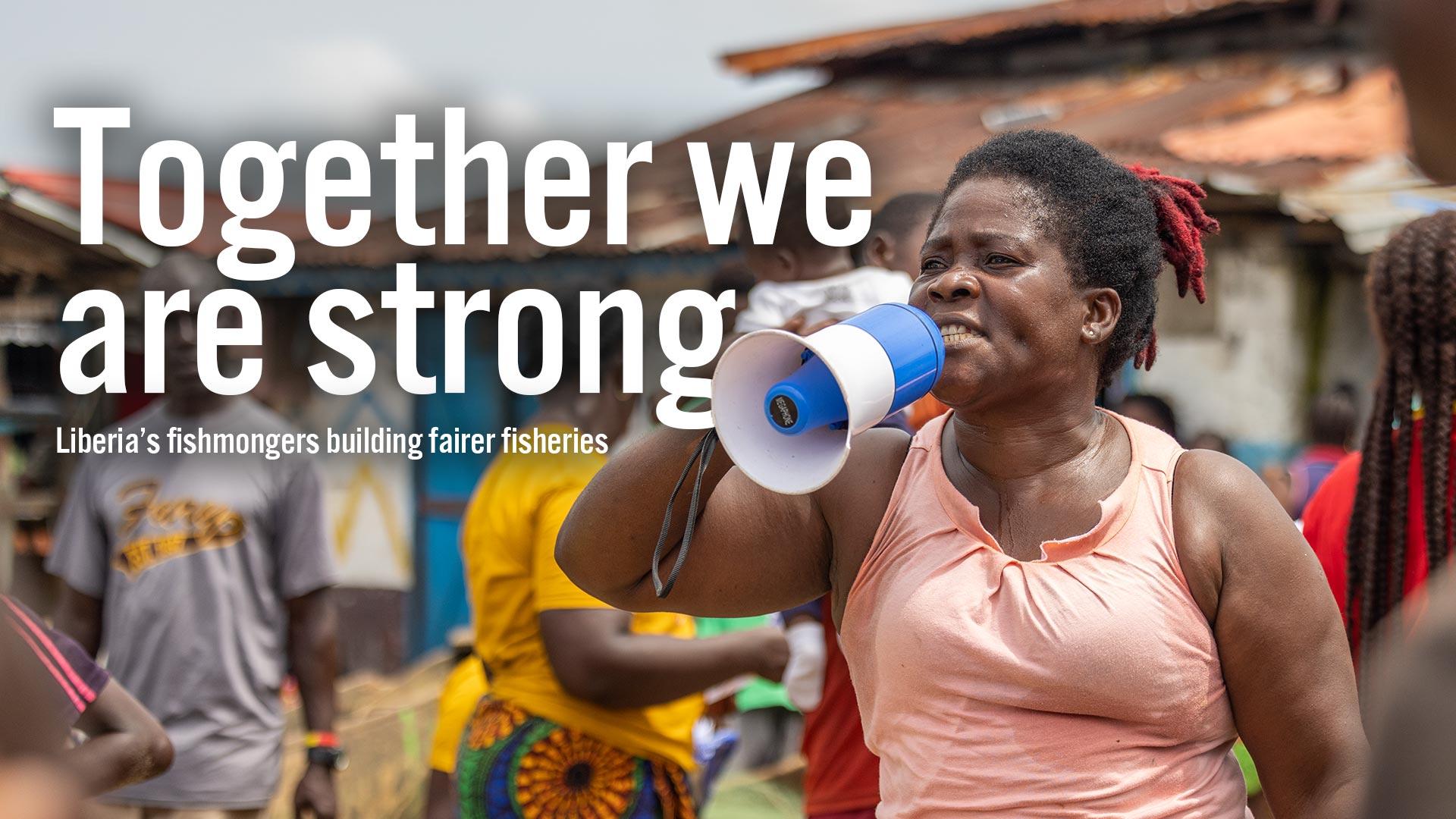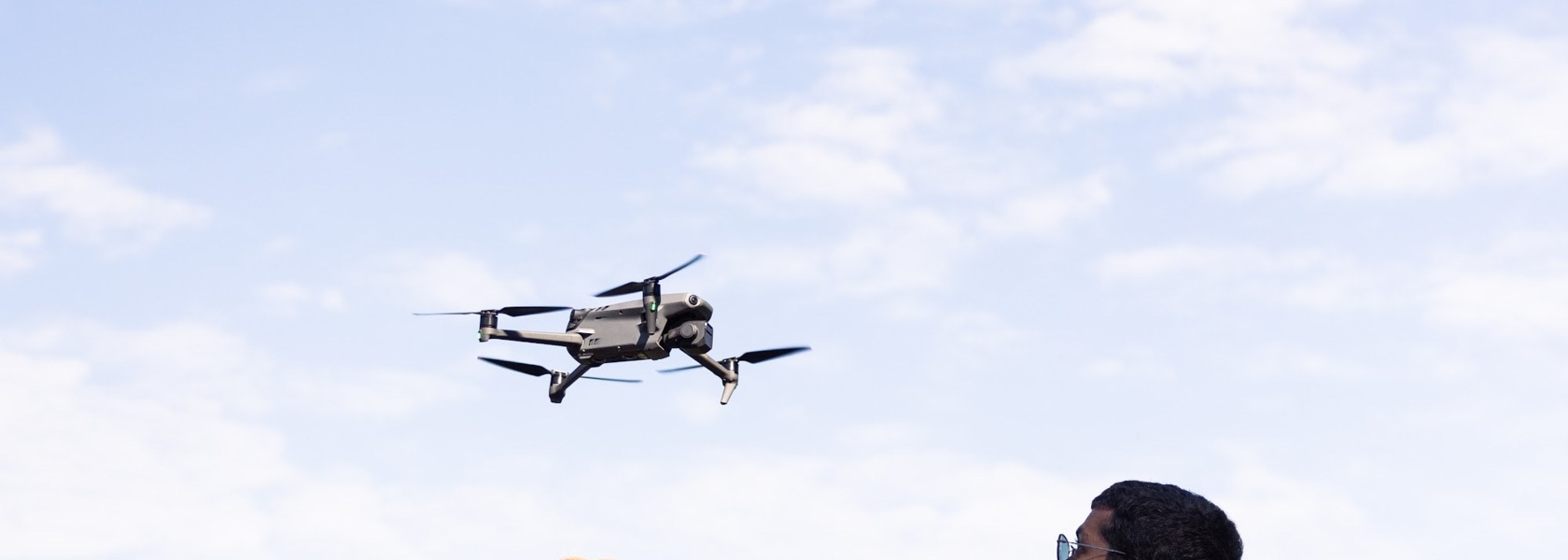Coastal, small-scale fisheries are responsible for 40% of the global fish catch totalling 37 million tonnes, and 492 million people are at least partially dependent on them for their income. As vital sources of nutrition, they provide sustenance to around one billion people, many of whom are in the Global South.
However, the FAO assesses that 35% of fisheries are considered overexploited, putting coastal fisheries at risk. Illegal, unreported and unregulated (IUU) fishing contributes significantly to this, particularly impacting some of the poorest countries globally. This drives overfishing and the collapse of fish populations, meaning swift change to protect marine life and coastal communities is urgently needed.
A global toolkit for change
Over the past decade, EJF has worked in Ghana, Liberia and Senegal to support fishing communities in managing and regulating their fisheries at local and national levels. This has been achieved through training and technology to gather evidence of IUU and by increasing the participation of coastal communities in decision-making through local and national associations.
With funding from the European Union, EJF is developing a global toolkit for participatory fisheries governance, allowing these tried and tested approaches to effective and equitable management to be implemented across the Global South. This will expand the reach of our work, supporting frontline communities to defend their environments and livelihoods.
The Toolkit
The toolkit takes the key elements of our existing work in West Africa and creates targeted training materials for fishing communities. The toolkit will provide templates of key technical documents, along with access to the DASE app, practical advice, case studies and films. EJF experts will deliver training and ongoing support both online and through in-country visits. The toolkit’s exact implementation will be informed by the communities that use it, giving it global reach but effective local application.
The three central pillars of the toolkit are:
Enhancing community surveillance of industrial fishing vessels through a smartphone application;
Promoting community governance through the development of co-management associations;
Strengthening national organisations representing artisanal fishers.
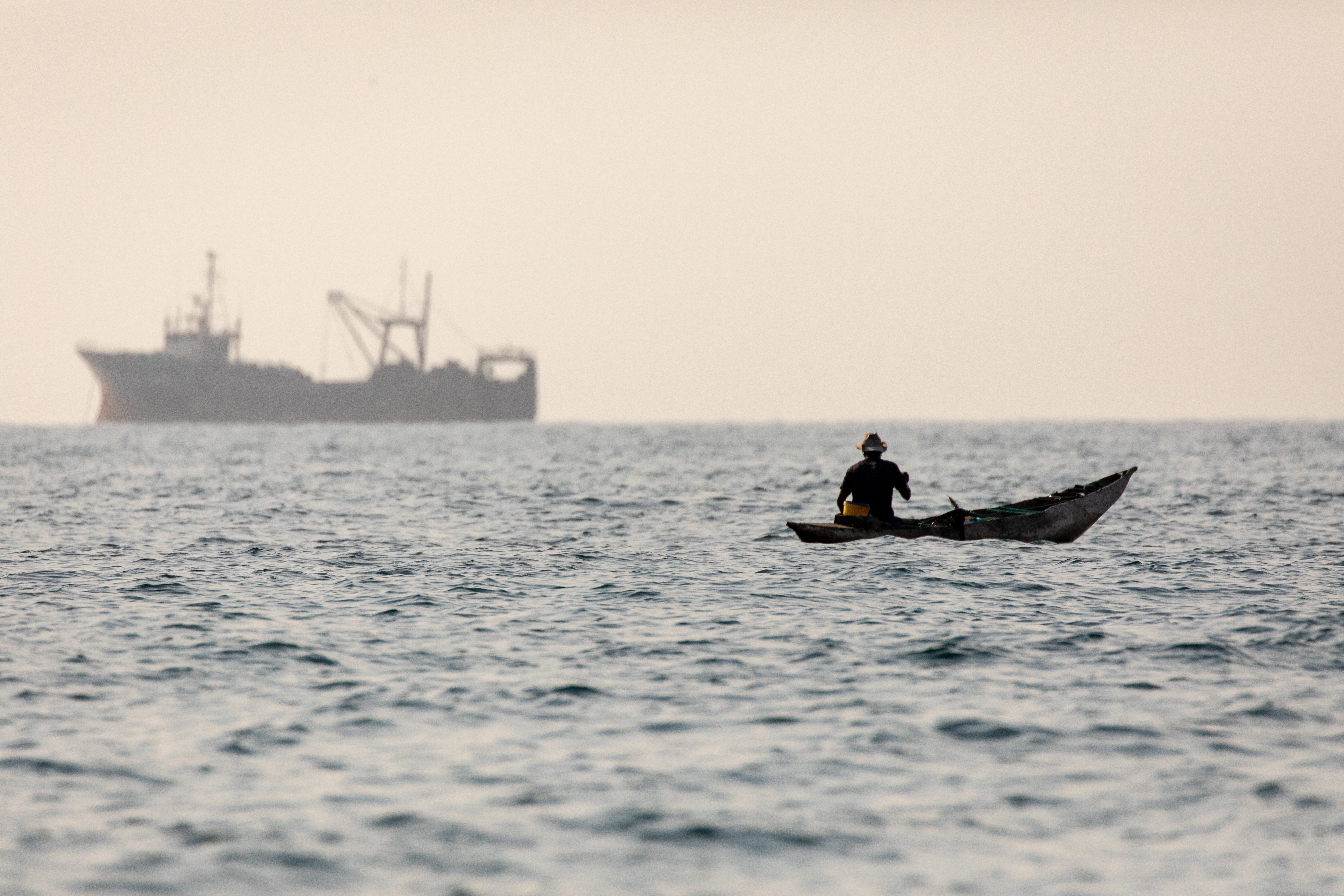
ENHANCING COMMUNITY SURVEILLANCE
In Ghana, Liberia and, most recently, Senegal, EJF’s "DASE" mobile application allows artisanal fishers to gather geotagged footage of illegal fishing at sea. When a vessel is spotted illegally fishing, or damaging canoes or gear, the user simply opens the app and takes a photo of the boat with its name or identification number showing and records the location. The app then uploads the report to a central database where the evidence can be used by the government to catch and sanction the perpetrators.
In Senegal alone, DASE has had over 700 reports submitted by local fishers. This cheap, readily available and practical technology enables fishers to manage their resources and protect the environment.
The DASE app has recently been adapted to monitor sea turtle conservation and shark fisheries and has further potential to gather information on other pressures faced by coastal communities, including mangrove loss and extractive industries.
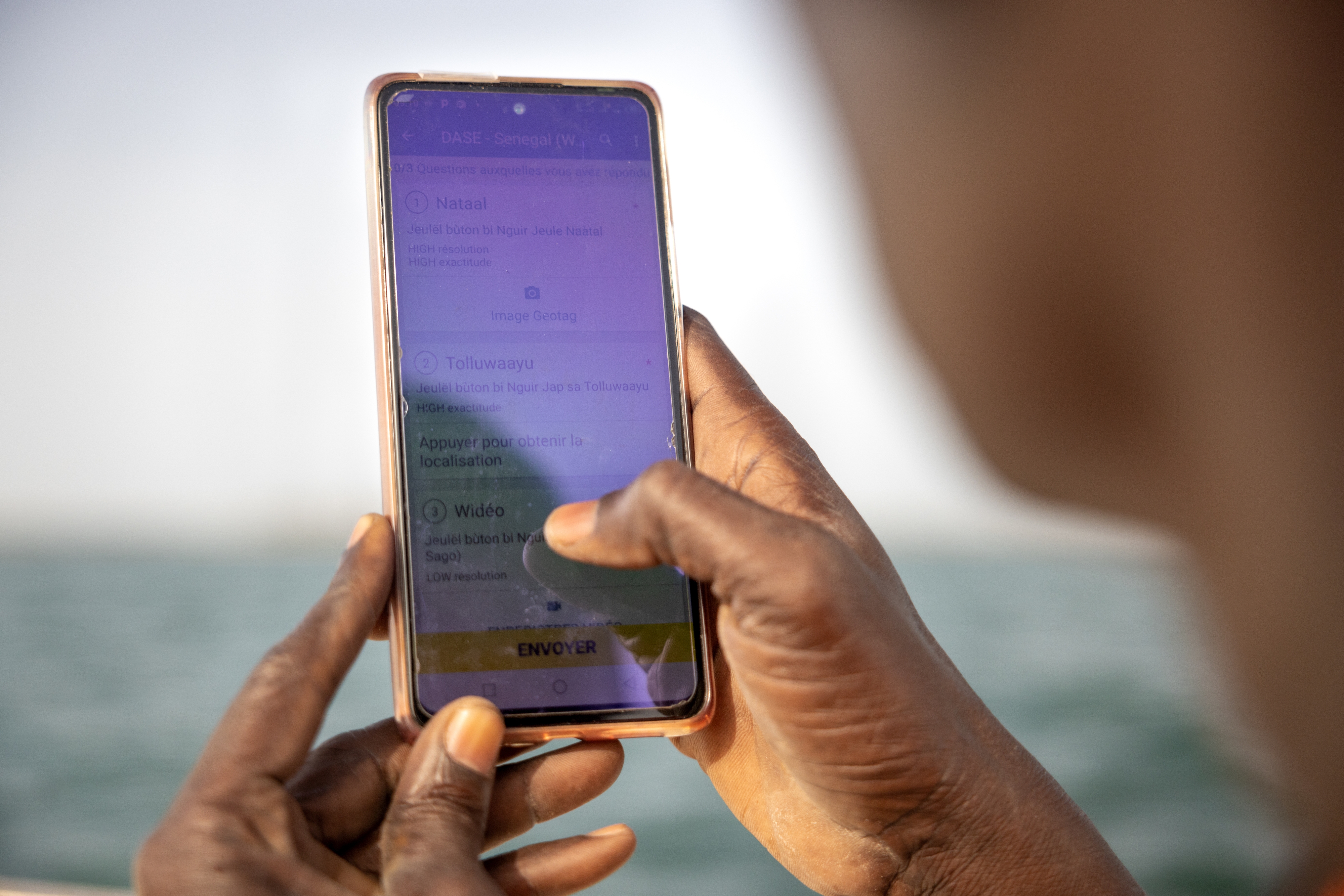
Illegal fishing is causing the collapse of Ghana’s staple fish stocks and the loss of food security, livelihoods and tens of millions of dollars in national revenue. This app means canoe fishers no longer have to stand by while industrial vessels fish illegally in their fishing grounds.
Nana Jojo Solomon, executive member of the Ghana National Canoe Fishermen Council
PROMOTING COMMUNITY GOVERNANCE
The role of communities in protecting and governing fisheries can also be strengthened through co-management associations (CMAs). CMAs are community groups that manage fisheries in partnership with the government through a democratic and participatory process, giving coastal communities greater control over decision-making.
The development of Grand Cape Mount County CMA in Liberia, for example, has helped to reconcile conflicts between different communities fishing in similar areas, with members now committing to work together to manage their shared fishing grounds. Community surveillance has also increased, with multiple cases of IUU fishing identified and reported to the authorities, allowing trawlers to be tracked and fishing regulations to be enforced.
Critically, gender equality is also promoted in the CMAs. In Liberia, half of all leadership positions in the CMAs are now occupied by women, encouraging widespread participation and bringing vital insight from processors, traders and fishers.
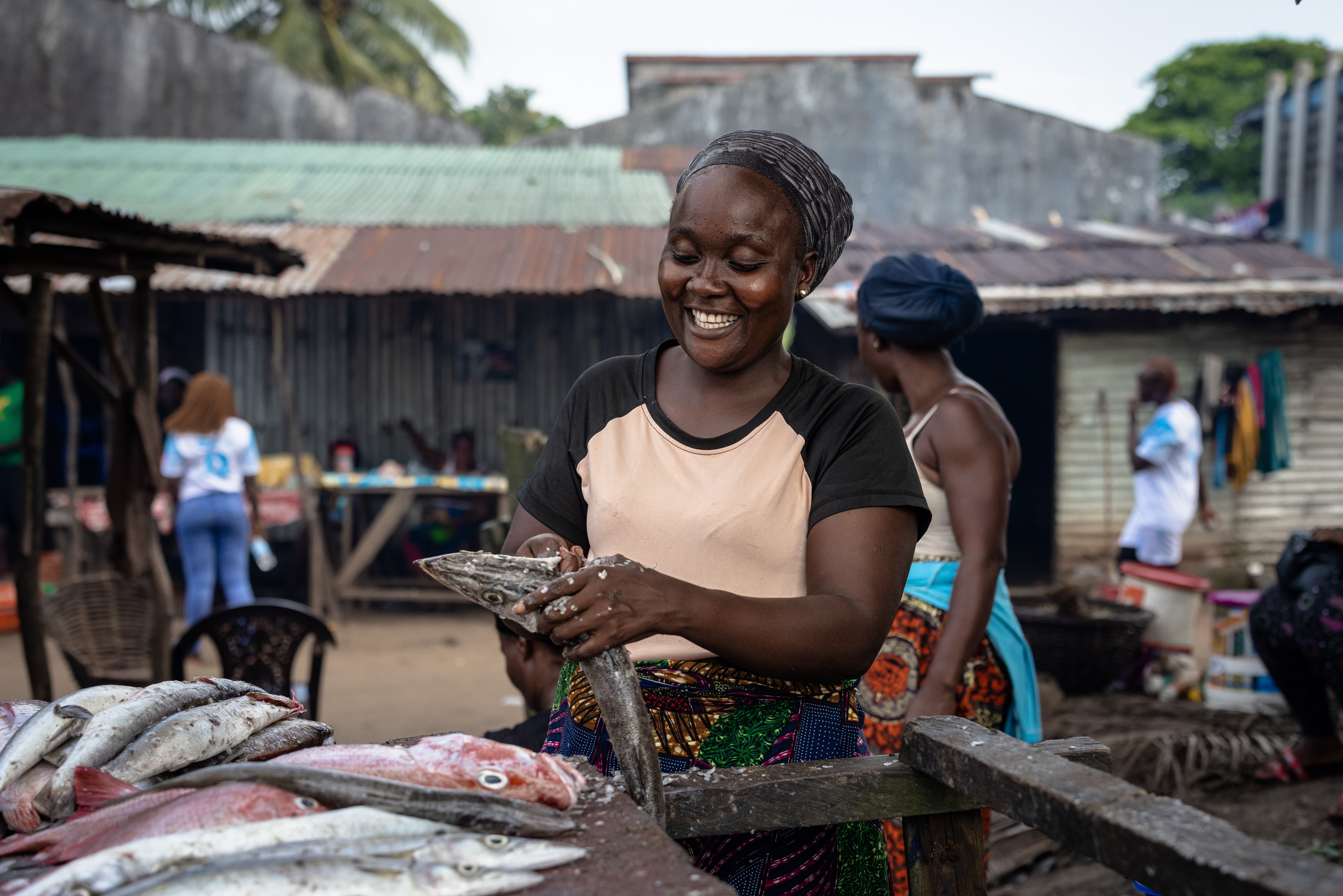
My greatest achievement has been uniting communities that were in conflict for a long period of time. With the help of the CMA, we now have these two communities working as a single unit.
John Adam, the secretary of the Robertsport CMA, Liberia
STRENGTHENING NATIONAL ORGANISATIONS
To enhance the momentum and influence of individual CMAs, EJF also supports national associations representing the artisanal sector. This includes the Liberia Artisanal Fishermen Association and the Ghana National Canoe Fishermen Council.
These groups are advised on how to engage with national authorities, whilst also being given training on management processes, gender equality, sustainable income streams and democratic governance.
Much like CMAs, these associations increase recognition of local issues to inform policy. This gives small-scale fishers and coastal communities more of a say in how fisheries are governed at a national level, facilitating large-scale change.
A TRANSPARENT AND FAIR FUTURE
Working for more sustainable and just fisheries benefits us all. EJF’s global toolkit for participatory fisheries governance can unlock equitable fisheries management that supports local communities, builds evidence against IUU fishing and encourages more sustainable practices that protect fish stocks.
